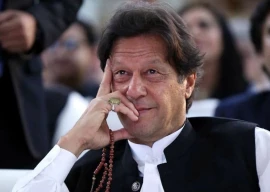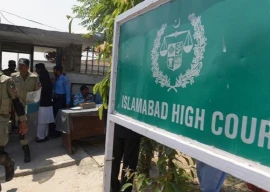
The best way to figure out how the rest of the world sees us is to benchmark our performance with others and then rank ourselves accordingly. This process is a standard procedure followed by corporations and professional organisations for assessing regional and global standing, as well as by companies for their employees, which is called the Annual Performance Appraisal.
In each of these activities, feedback is gathered on an individual’s performance from peers, partners and stakeholders and is rated on a scale of ‘outstanding’ to ‘weak’. The same benchmarking activity can be carried out for countries based on economic, demographic, institutional and political performance.
Some of the best known global benchmarking studies are carried out by reputable organisations annually. Each of these studies reviews a different aspect of a country, its economy or its prosperity. Lets go through some:
Human Development Index (HDI)
The HDI is a composite statistic of life expectancy, education, and income indices. It ranks countries into four tiers of human development: ‘low’, ‘medium’, ‘high’ or ‘very high’. It was created by renowned Pakistani economist Prof Dr Mahbubul Haq, and economist Amartya Sen in 1990, with an explicit purpose “to shift the focus of development economics from national income accounting to people-centred policies”. Pakistan ranks 145 out of a sample of 187 countries in this index, ie in the fourth or the ‘low’ human development tier.
Global Competitive Report (GCR)
The GCR integrates macroeconomic and micro/business aspects of competitiveness into a single index. The report assesses how productively a country uses its limited resources and its ability to provide high levels of prosperity to their citizens. Pakistan ranks 124 out of 144 countries.
Democracy Index
The democracy index measures the state of democracy and is based on 60 indicators grouped in five different categories: ie, electoral process and pluralism, civil liberties, functioning of government, political participation and political culture. The countries are finally categorized into ‘full democracies’, ‘flawed democracies’, ‘hybrid regimes’ and ‘authoritarian regimes’. Pakistan is now rated as a hybrid regime, versus an authoritarian regime back in early 2000. Pakistan ranks 105 out of 167 countries.
Global Innovation Index (GII)
The GII is calculated as a simple average of seven pillars, of which the first five are ‘input’ pillars and the last two are ‘output’ pillars. The pillars are: institutions, human capital and research, infrastructure, market sophistication, business sophistication, scientific outputs, and creative outputs. Overall Pakistan ranks 105 out of 125 countries
Legatum Prosperity Index (LPI)
The LPI is an annual ranking of 110 countries and is based on a variety of factors including wealth, economic growth, personal well-being, and quality of life. It reviews 89 variables that are grouped into eight sub-indexes, each with an equal weight. The eight factors are: economy, entrepreneurship and opportunity, governance, education, health, safety and security, personal freedom, and social capital. Pakistan ranks at a poor 107 out of 110 countries.
As can be seen from the table, Pakistan has a long way to go, because in four out of the five studies, we are ranked at the bottom or fourth quartile (in red). In the Democracy Index, we have recently moved up from the fourth to the third quartile. In addition, when we compare ourselves with our three closest neighbours – ie India, Bangladesh and Sri Lanka – we are ranked last in each benchmarking study with the only exception being HDI, where Sri Lanka is ranked one position behind us.
One of the best ways to bring an improvement across the board is to focus on the 2015 Millennium Development Goals (MDG), set by the United Nations in 1990 for the entire world. The MDG are made up of eight key goals ranging from: eradicating hunger (reducing poverty); providing universal primary education; providing gender equality and woman empowerment; reducing infant mortality (needs improved health care, sanitation and safe drinking water); improving maternal health; combating diseases; ensuring environmental sustainability; and, finally, global partnerships for development.
Our popularly-elected government will have to take extraordinary measures in order to achieve many of the targets set up for each of the MDG goals. This will only be possible if these targets are given the status of ‘no-miss’ goals to relevant ministries, with strong accountability and punitive measures accompanying them if no progress is made.
We can forget about competing with the rest of the globe if these measures are not taken, as there is much stronger commitment, planning and strategising to achieve these goals elsewhere. I have no doubt that we deliver a few of the MDG goals by 2015, if we as a nation focus single-mindedly in driving prosperity and improving the standards of living for the average Pakistani.
THE WRITER WORKS IN THE CORPORATE SECTOR AND IS ACTIVE ON VARIOUS BUSINESS FORUMS AND TRADE BODIES
Published in The Express Tribune, November 5th, 2012.
COMMENTS (20)
Comments are moderated and generally will be posted if they are on-topic and not abusive.
For more information, please see our Comments FAQ

1732243059-0/mac-miller-(2)1732243059-0-165x106.webp)

1672385156-0/Andrew-Tate-(1)1672385156-0-165x106.webp)
1732240377-0/mac-miller-(1)1732240377-0-165x106.webp)



1732240636-0/WhatsApp-Image-2024-11-21-at-19-54-13-(1)1732240636-0-270x192.webp)








@Super sequel .. Agreed .. until very recently Pakistan was ahead of other south asian nation but what did you do with your wealth?? did you build new factories ,laid down new railway networks ,road networks , powrplants and dams ,new school colleges or top class universities ?? no i tell you what you did , you bought new f-16s , new tanks ,new missiles with fancy islamic names, your islamic atomic dhamaka...and now you look up to India who btw only now have start to grow and console yourself that you had better times .. boo-hoo stop sulking now..
@Riaz Haq:
leave these " motherhood talk "...with all that....where we should be & where are ?
@Super sequel:
It was also between 2001 to 2005.....give the devil its due....
@Manishj: Wish more people can go beyond borders and look for the goods in things -- the world would be a better place for everyone. We need to learn from each other, build from our pasts mistakes and above all have a positive energy to do the rigth things. As things have been difficult for so long specially the law and order situation, many people are losing their patience with Pakistan and is leaders. To me the day we lose hope, we have nothing to live for. I personally think we have amazing resources both human and in-kind like agriculture, minerals, etc. which alone can give us a huge boast if properly exploited and used. We obviously look with envy at India's strong economic growth over the last 2 decades. We need to focus on trade, indusry, poverty alleviation and peace .. rest will follow.
Pakistan is one of the largest and most important countries in the world. With population exceeding 170 million, it is one of only eight nations armed with nuclear weapons. The nation ranks as sixth largest in population, seventh largest in its army size, 8th in number of mobile phone users, 10th in educated English speaking population, 10th in labor force size, 17th largest in number of Internet users, 26th in economy and 34th in land area.
Pakistan sits at the entrance to the oil rich Persian Gulf, and it shares borders with Afghanistan, Iran and the world's most populous nuclear states of China and India. Pakistan's Gwadar port is only 180 nautical miles from the exit of the Straits of Hormuz, considered extremely important for the flow of the bulk of world's demand for oil transportation from the Gulf nations. It provides convenient access to sea routes for many of the landlocked mineral-rich Central Asian states and Western China.
Pakistan has a 650-mile long coastline on the Arabian Sea, extending from India to Iran. In addition, some of the air and land routes between west and east pass through Pakistan because of its central location. Karachi and Gawadar have natural harbor ports serving as trading and re-fueling stop for ships.
http://www.riazhaq.com/2009/11/is-pakistan-too-big-to-fail.html
Pakistan is one of the largest and most important countries in the world. With population exceeding 170 million, it is one of only eight nations armed with nuclear weapons. The nation ranks as sixth largest in population, seventh largest in its army size, 8th in number of mobile phone users, 10th in educated English speaking population, 10th in labor force size, 17th largest in number of Internet users, 26th in economy and 34th in land area.
Pakistan sits at the entrance to the oil rich Persian Gulf, and it shares borders with Afghanistan, Iran and the world's most populous nuclear states of China and India. Pakistan's Gwadar port is only 180 nautical miles from the exit of the Straits of Hormuz, considered extremely important for the flow of the bulk of world's demand for oil transportation from the Gulf nations. It provides convenient access to sea routes for many of the landlocked mineral-rich Central Asian states and Western China.
Pakistan has a 650-mile long coastline on the Arabian Sea, extending from India to Iran. In addition, some of the air routes between west and east pass through Pakistan because of its central location. Karachi and Gawadar have natural harbor ports serving as trading and re-fueling stop for ships.
http://www.riazhaq.com/2009/11/is-pakistan-too-big-to-fail.html
Pakistan in the early 1990s was ahead from her south Asian neighbors. We can still do that but terrorism does remain a big hurdle. Why do people forget that? India and Bangladesh don't have a big problem as we do. Give us a peaceful decade of non violence and we will be back on track
It doen't matter what others think of us. What we need to do is just to improve ourselves. No one gives a coin what others think
@ author:: "It was created by renowned Pakistani economist Prof Dr Mahbubul Haq, and economist Amartya Sen in 1990: Sir, Dr Amartya Sen is a nobel laureate, seems he is not a renowed economist in your view :)
Well, that depends on whether:
1) We honestly realize what the international community thinks of us
2) We listen to Imran Khan's version.
(1) and (2) are poles apart.
It would be an added exercise, difficult but not impossible but worth the effort. If for Pakistan they could produce two sets of gradings 1) with government involvement, and 2) without government involvement. This would be an eye opener although everyone knows what the result would look like.
Hello,
I am one of those indians who troll ( as some of the Pakistanis would love to call) on this site to find out how our neighbour is doing. i generally just read and dont comment as most of the time i dont find myself adding value to the discussion. But in this case, i must say that it is a very interesting read. i am not very ecstatic that India is some notches up, because the kind of condusive atmosphere for growth we had we should have been way up in the list.
However, i find this write up very positive in the sense that it gives some direction as what should Pakistan and for that matter India do to make things better for our lot.
Thank you very much and best luck.. as Zig zigler's book says- See you at the top. :)
That Pakistani is not born yet who will have the boldness to ask the Army to divert a percentage of its mammoth budget to education, sanitation, clean drinking water, healthcare, etc. And as we know, Army is the real ruler of this country especially when it comes to cutting up the budgetary pie. But, hey, the good news is that HDI is very high if the sample includes only the 1 million in armed forces.
The recent outcry on MDGs by almost all political parties have exposed their real faces,...they are all interested to fill their pocket.....
A wake up call for the writer..
http://int-history.blogspot.com/2012/09/every-time-military-usurper-usurped.html
We should have remained in the 4th quartile. of the Democracy index.
india's HDI rank was 132 and china was at 101...........both in the medium category............ bangladesh is close to pakistan in HDI .... i think very close
An interesting challenge out of many, But unfortunately our government disowns these numbers!
Its a very tough task. Easier way is to bring down world to our standards.